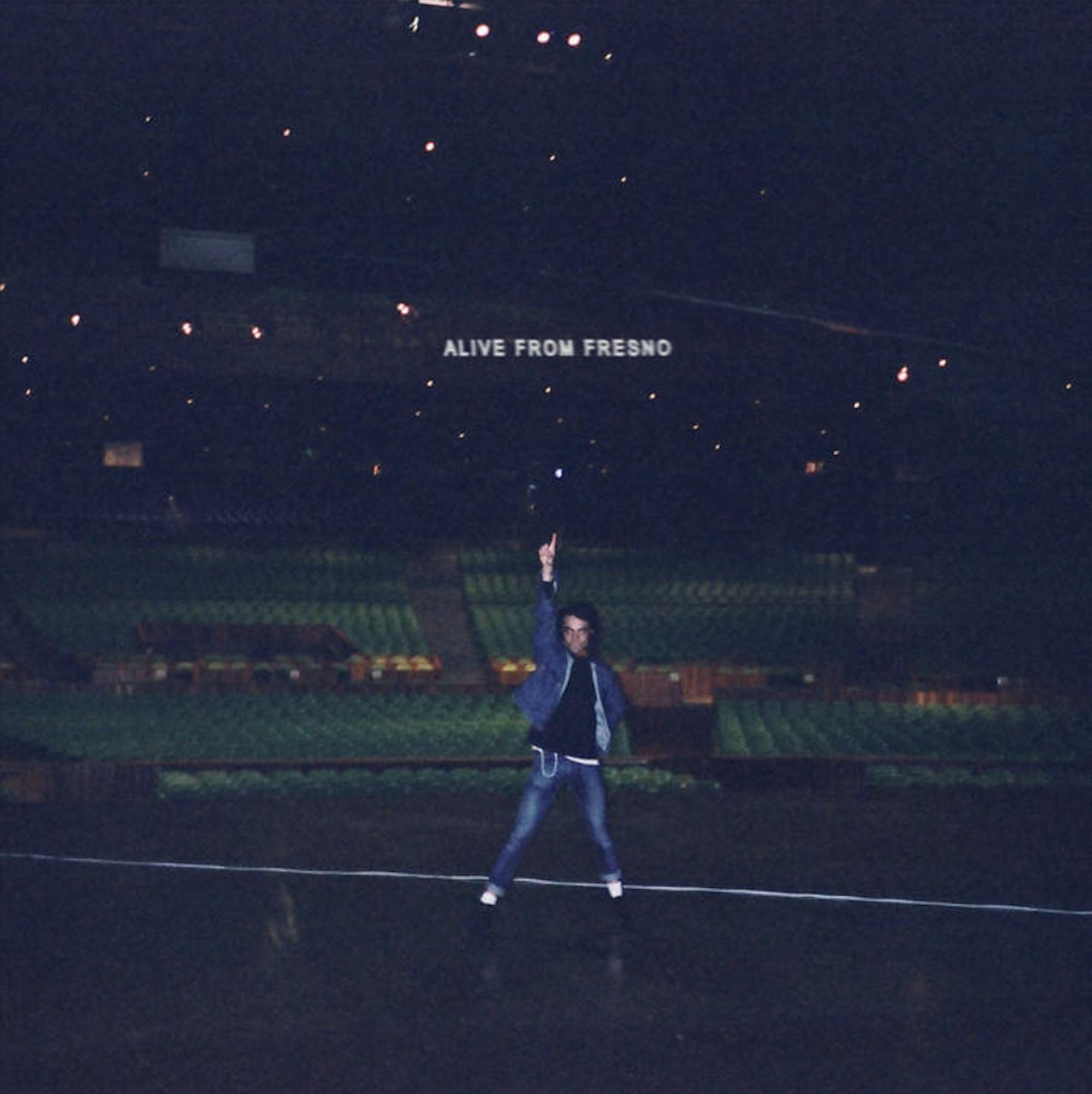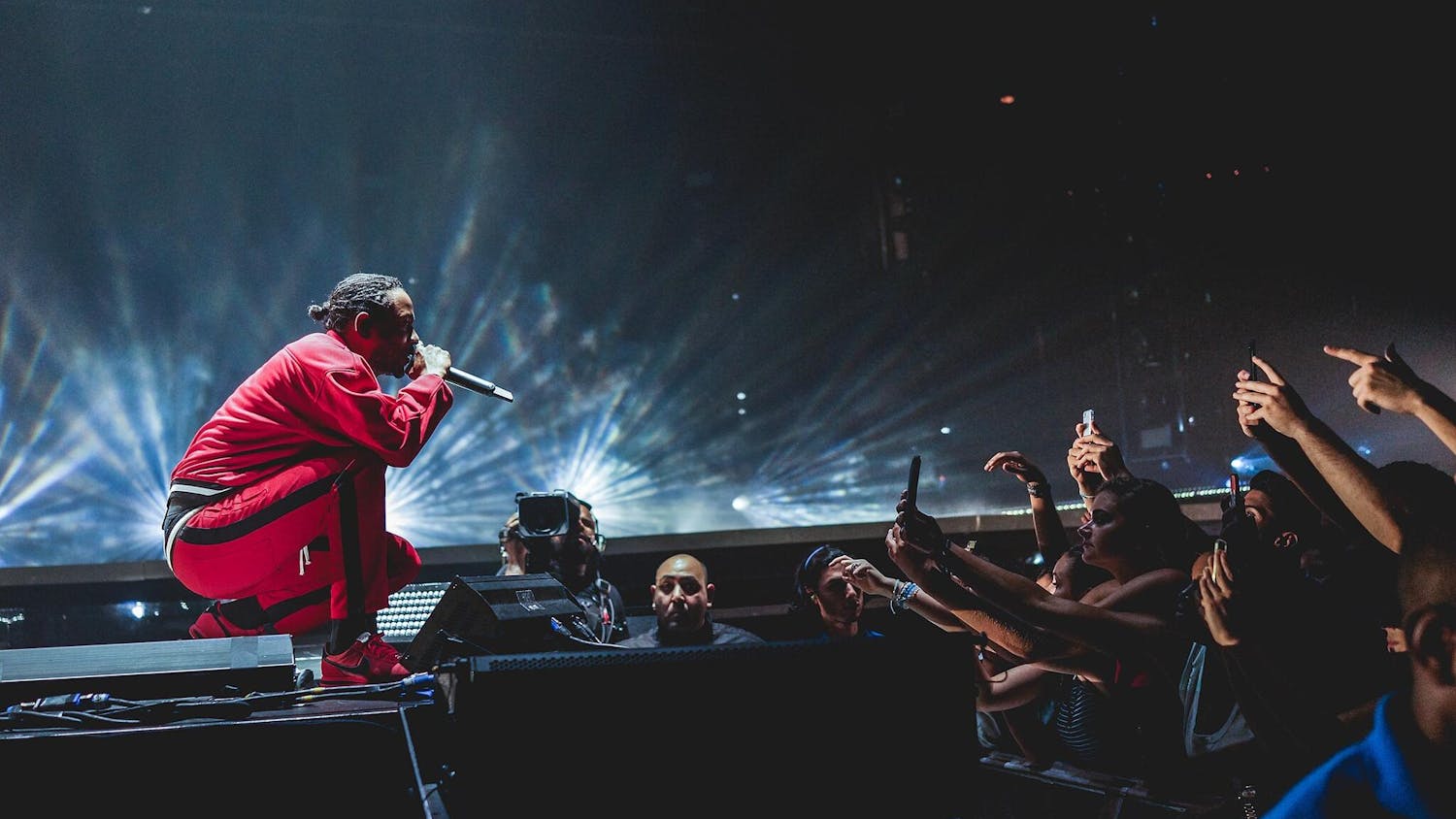Holden Jaffe picks up the phone after a couple rings, greeting me with a “Hey!” His enthusiastic yet easygoing tone immediately conveys the kind of person he is. He says he appreciates me interviewing him as I start to say I appreciate him taking the time to talk with me, and we both laugh.
Jaffe is the artist behind the solo project Del Water Gap. He’s an alternative/indie singer and songwriter who’s been producing music since he released his first project during his senior year of high school. Hailing from northern Connecticut, Jaffe started playing the drums in elementary school. As a kid, he was in aPhish cover band.
“It was funny ... it was all kids and then we had a 50-year-old bass player,” Jaffe said, laughing again.
The first real band he was in was a noise rock band with some of his friends from the sleep-away camp he attended in Maine. They rehearsed and played shows in New Jersey, where, driving around, Jaffe got the idea for the name of his current project.
“I just used to see signs for [the Delaware Water Gap], and I always thought that it was such a cool name,” Jaffe explained. “I had a growing list of band names because I had the idea to start a project of my own, in an iPhone note, and Del Water Gap ended up on there. It was the one that I chose when I was 17, and it stuck.”
Jaffe spent his teen years at theMillbrook School in Millbrook, NY, a boarding school where he turned a storage room into a recording studio as part of an independent study project. It was there that he recorded the first Del Water Gap record. He then went on to attend the Clive Davis Institute of Recorded Music, a specialized and intimate program within the Tisch School of the Arts at New York University.
Jaffe was encouraged by his friends to play a show after they heard the record he made in high school.
“One of them became my manager, if you can call it that … and booked me a show at a venue called Sullivan Hall, which is gone now, but we played a show and sold it out and it went really well,” Jaffe said. “It just became the focus, little by little.”
Jaffe reflected on the NYU music scene at the time.
“When I got there, everyone was in a band. It was sort of a golden age, in retrospect, of indie bands,” he said. “It was a really exciting time to be there and a really inspiring time for me … I bought a leather jacket and started taking film photos and did the whole thing.”
Jaffe spoke of coming out of bars and running into Alex Turner, the frontman of the Arctic Monkeys, a band he cited as one of his favorites at the time, along with Grizzly Bear, Sleigh Bells and Real Estate.
Del Water Gap took many forms over the course of Jaffe’s college career, with bandmates coming and going. He said that by the end of college, the two guys he had started it with ultimately decided not to do it anymore.
“Right around that time, things started picking up a little bit. I put out an EP that was doing well on Spotify, I started getting a couple small record deal offers, so I effectively was like ‘yeah, I think I’ll keep this and do a solo project,’” Jaffe said. “Over the years, it’s pushed further into the direction of it really being me, an extension of me and my personality and my identity.”
Among the passing members of Del Water Gap was Maggie Rogers, an artist who has blown up in the past couple years and is widely known for her album “Heard It In A Past Life” (2019). She was in Del Water Gap for about six months when she and Jaffe were at the Clive Davis Institute of Recorded Music together, having crossed paths with him at the summer camp in Maine where he met his first bandmates.
“She was a really integral part to me playing music … She really inspired me to share my art and really helped me do that,” Jaffe said of Rogers. “She was a really, really big part of the early days and I really feel like I learned to be a writer with her, and she has been the way that she is for a long time: very passionate, very gifted and her energy was always very contagious.”
Jaffe said he and Rogers did Del Water Gap as a duet for a while, recording music and playing shows together, but they didn’t end up releasing any of the music at the time. However, Rogers put out an album in 2020 called “Notes from the Archive: Recordings 2011-2016,” that included a track with Del Water Gap on it — “New Song,” from when Rogers and Jaffe played together.
“[‘New Song’] had always been very special to me … The really interesting part about [the release] was just thinking about my roots as a creator and sort of dipping back into that,” Jaffe said. “It’s like reading a journal from seven years ago … It’s such a different, uninhibited version of yourself.”
Since the NYU days, Del Water Gap has grown immensely as an artist. He has over 900,000 monthly listeners and his most popular song on Spotify, “High Tops” (2017), has garnered over 9.5 million listens. Right now, Jaffe is in the midst of working on new music, with his first full-length album in the works after a series of EPs and singles.
“I’m making a bigger batch of music, which will hopefully be an LP,” Jaffe said. “It’s sounding great and it will be out this year, and I’m so excited to share it.”
One of those EPs, “1 (646) 943 2672,” (2017) was titled after a burner phone with the same number. Jaffe bought the phone as an “experiment” to see who would try calling the number and who he could connect with.
Jaffe recalled some confused stoners calling the line, but said he mostly got interested callers with whom he had good conversations.
“I was shocked with how genuine, kind, curious and warmhearted most people were... I think anyone that was actually curious enough to hit the number was really kind,” Jaffe said.
Jaffe spoke often and passionately of these kinds of moments where he was able to connect with fans. Post-pandemic, he’s really looking forward to getting back to playing shows, partially for that reason. Of playing live, Jaffe said, “Oh, god, I miss it so much.”
He cited the Bowery Ballroom in New York, Red Rocks Amphitheatre in Colorado andthe Troubadour in Los Angeles as venues he’d love to play at in the future.
Jaffe’s desire to connect with fans in these organic ways feels innately rooted in the kind of music he produces and the role he hopes his music plays in people’s lives. With a smile evident through his voice, Jaffe tells the story of what he calls “one of the greatest moments of [his] entire life."
“I put out a song last year called ‘Ode to a Conversation Stuck in Your Throat,’ and two weeks after I put it out, I was on a run and this car drove by me and it was playing out of the car,” Jaffe said. “Someone is just going about their life and my song is part of that, in the background, and that’s just the most powerful feeling.”
With a palpable change to his tone, he expanded further, speaking to the way he sees his music resonating with others.
“I love the notion of just soundtracking intimate moments in people’s lives,” Jaffe said wistfully. “People will send me little snippets, sort of like ‘Hey, I just wanted to say I was on a drive today with this person I am in love with, and I’m going to tell them later, and your song was playing in the background.’ To me, that is the dream as a creator, to sort of have my music woven into the fabric of people’s daily lives.”






